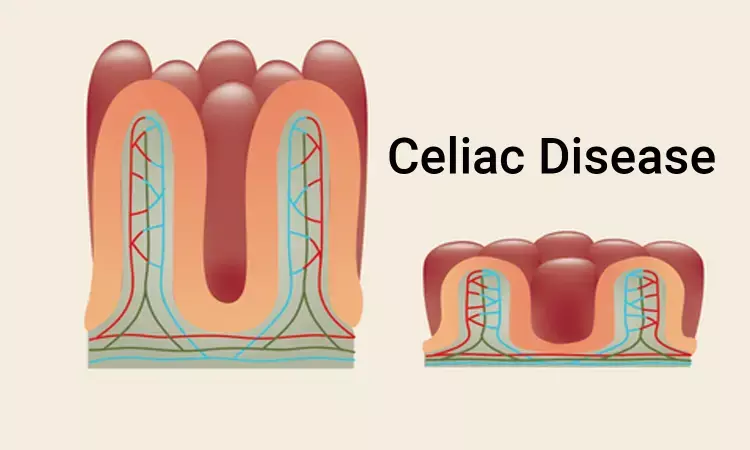- Home
- Medical news & Guidelines
- Anesthesiology
- Cardiology and CTVS
- Critical Care
- Dentistry
- Dermatology
- Diabetes and Endocrinology
- ENT
- Gastroenterology
- Medicine
- Nephrology
- Neurology
- Obstretics-Gynaecology
- Oncology
- Ophthalmology
- Orthopaedics
- Pediatrics-Neonatology
- Psychiatry
- Pulmonology
- Radiology
- Surgery
- Urology
- Laboratory Medicine
- Diet
- Nursing
- Paramedical
- Physiotherapy
- Health news
- Fact Check
- Bone Health Fact Check
- Brain Health Fact Check
- Cancer Related Fact Check
- Child Care Fact Check
- Dental and oral health fact check
- Diabetes and metabolic health fact check
- Diet and Nutrition Fact Check
- Eye and ENT Care Fact Check
- Fitness fact check
- Gut health fact check
- Heart health fact check
- Kidney health fact check
- Medical education fact check
- Men's health fact check
- Respiratory fact check
- Skin and hair care fact check
- Vaccine and Immunization fact check
- Women's health fact check
- AYUSH
- State News
- Andaman and Nicobar Islands
- Andhra Pradesh
- Arunachal Pradesh
- Assam
- Bihar
- Chandigarh
- Chattisgarh
- Dadra and Nagar Haveli
- Daman and Diu
- Delhi
- Goa
- Gujarat
- Haryana
- Himachal Pradesh
- Jammu & Kashmir
- Jharkhand
- Karnataka
- Kerala
- Ladakh
- Lakshadweep
- Madhya Pradesh
- Maharashtra
- Manipur
- Meghalaya
- Mizoram
- Nagaland
- Odisha
- Puducherry
- Punjab
- Rajasthan
- Sikkim
- Tamil Nadu
- Telangana
- Tripura
- Uttar Pradesh
- Uttrakhand
- West Bengal
- Medical Education
- Industry
Early Childhood Diets Impact Celiac Disease Risk in Genetically Predisposed Children

In a groundbreaking study conducted by The Environmental Determinants of Diabetes in the Young (TEDDY), researchers have uncovered a significant connection between early childhood dietary patterns and the development of celiac disease autoimmunity (CDA) in genetically susceptible children. This study, encompassing data from 6726 participants at genetic risk for type 1 diabetes and celiac disease, delves into the influence of dietary choices on the incidence of CDA and celiac disease. The study concluded that dietary patterns in early childhood are linked to the risk of CDA and celiac disease in genetically predisposed children, independent of gluten intake.
The study results were published in The American Journal of Clinical Nutrition.
Celiac disease, an immune-mediated condition triggered by gluten intolerance, is intricately tied to human leukocyte antigen (HLA)-DQ2 and DQ8 haplotypes. Although genetics explains only half of the risk, environmental factors may contribute. This study investigates how early-life dietary patterns at the age of 2, beyond gluten intake, impact celiac disease and autoimmunity in genetically predisposed children.
Participants, enrolled in the TEDDY study, underwent annual screening for tissue transglutaminase autoantibodies (tTGAs) starting from the age of 2. The study employed principal component analysis to discern dietary patterns based on the intake of 27 food groups, as assessed by 3-day food records when the children were between 9 and 24 months old. The primary outcome measured was CDA (persistently tTGA-positive in at least 2 consecutive samples), with celiac disease as the secondary outcome.
Results:
- At 9 months, children following a dietary pattern high in vegetable fats and milk exhibited a reduced risk of CDA.
- By 24 months, a different dietary pattern emerged, characterized by a higher consumption of wheat, vegetable fats, and juices, coupled with a lower intake of milk, meat, and oats. This pattern was associated with an increased risk of both CDA and celiac disease.
The study's findings underscore the critical impact of early childhood dietary choices on the risk of CDA and celiac disease in genetically predisposed children, revealing associations independent of gluten intake. Specifically, adhering to a diet high in vegetable fats and milk at 9 months was linked to a diminished risk of CDA, while a dietary pattern involving increased wheat, vegetable fats, and juices, and reduced milk, meat, and oats at 24 months raised the risk of both CDA and celiac disease.
These revelations highlight the importance of considering early dietary factors in high-risk individuals and may pave the way for targeted strategies to mitigate the risk of celiac disease autoimmunity and celiac disease in susceptible pediatric populations. As researchers delve deeper into the mechanisms underpinning these associations, these findings could potentially reshape dietary recommendations for at-risk children.
Further reading: Associations of dietary patterns between age 9 and 24 months with risk of celiac disease autoimmunity and celiac disease among children at increased risk. https://doi.org/10.1016/j.ajcnut.2023.08.009
BDS, MDS
Dr.Niharika Harsha B (BDS,MDS) completed her BDS from Govt Dental College, Hyderabad and MDS from Dr.NTR University of health sciences(Now Kaloji Rao University). She has 4 years of private dental practice and worked for 2 years as Consultant Oral Radiologist at a Dental Imaging Centre in Hyderabad. She worked as Research Assistant and scientific writer in the development of Oral Anti cancer screening device with her seniors. She has a deep intriguing wish in writing highly engaging, captivating and informative medical content for a wider audience. She can be contacted at editorial@medicaldialogues.in.
Dr Kamal Kant Kohli-MBBS, DTCD- a chest specialist with more than 30 years of practice and a flair for writing clinical articles, Dr Kamal Kant Kohli joined Medical Dialogues as a Chief Editor of Medical News. Besides writing articles, as an editor, he proofreads and verifies all the medical content published on Medical Dialogues including those coming from journals, studies,medical conferences,guidelines etc. Email: drkohli@medicaldialogues.in. Contact no. 011-43720751




